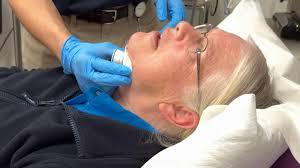The anti snoring devices and snoring surgery market is increasingly adopting artificial intelligence (AI) and digital tools to enhance patient treatment and improve therapy outcomes. Sleep disorders such as obstructive sleep apnea and habitual snoring require personalized management, monitoring, and follow-up care. AI-enabled devices, digital applications, and telemedicine platforms facilitate precise treatment, patient engagement, and continuous monitoring. By integrating technology into therapy, healthcare providers and manufacturers can optimize patient adherence, adjust treatments in real time, and collect actionable data for improved clinical outcomes, driving innovation and market growth.
AI-Enabled Devices
AI integration in anti snoring devices enables personalized therapy by analyzing individual patient data. Mandibular advancement devices, tongue stabilizers, and smart CPAP alternatives equipped with sensors can detect snoring patterns, sleep disruptions, and airway obstructions. AI algorithms analyze these patterns to provide personalized recommendations, adjust device settings, and optimize therapy efficacy. Continuous feedback ensures that patients maintain adherence, improving treatment outcomes. Manufacturers benefit from AI-enabled devices by enhancing patient satisfaction, differentiating their products, and creating opportunities for recurring revenue through software updates and subscription-based services.
Digital Tools for Remote Monitoring
Digital tools, including mobile applications, cloud-based monitoring, and telemedicine platforms, allow healthcare providers to track patient progress remotely. Patients can receive real-time feedback, reminders, and therapy instructions via connected applications, reducing the need for frequent clinic visits. Remote monitoring enhances convenience, improves adherence, and allows early detection of potential issues. Providers can intervene promptly, adjust treatment protocols, and offer personalized guidance. This digital integration supports a seamless therapy experience, reinforcing patient engagement and ensuring better clinical results.
Data Analytics and Treatment Optimization
AI and digital tools generate comprehensive datasets on patient sleep patterns, snoring intensity, device usage, and response to therapy. Advanced analytics enable healthcare providers to identify trends, assess treatment effectiveness, and refine therapy plans. Insights derived from data analytics guide product innovation, optimize device design, and inform clinical decision-making. Data-driven treatment strategies improve efficiency, reduce complications, and enhance overall patient satisfaction. Investors and manufacturers benefit from actionable insights that inform product development and market positioning, strengthening competitiveness in the global market.
Telemedicine Integration
Telemedicine platforms complement AI-enabled devices by offering remote consultations, follow-ups, and patient support. Patients can discuss treatment progress, troubleshoot device usage, and receive professional guidance without visiting clinics. Telemedicine enhances accessibility for patients in remote areas, improves adherence, and reduces treatment discontinuation rates. Integration with AI and digital monitoring ensures a cohesive, patient-centric approach to therapy. Providers can maintain continuity of care while managing larger patient populations efficiently, supporting both clinical outcomes and operational efficiency.
Personalized Therapy Approaches
AI and digital tools enable highly personalized therapy tailored to individual anatomical structures, snoring severity, and lifestyle factors. Personalized treatment plans increase patient comfort, adherence, and satisfaction. Adaptive devices that adjust automatically based on AI recommendations respond to real-time therapy needs. This personalization strengthens patient confidence in treatment, improves clinical outcomes, and fosters long-term engagement with therapy. Manufacturers investing in personalized, AI-driven solutions can differentiate their offerings and capture higher market share.
Impact on Market Adoption
The integration of AI and digital tools increases patient adoption of anti snoring devices and surgical solutions. Enhanced monitoring, real-time feedback, and personalized guidance make therapy more effective, convenient, and user-friendly. Patients are more likely to initiate and maintain treatment when they experience measurable improvements and consistent support. Widespread adoption of AI-enabled and digitally monitored therapies drives market growth, encourages further innovation, and reinforces the value proposition for healthcare providers and manufacturers.
Regional and Global Implications
Developed regions, including North America and Europe, are leading in the adoption of AI and digital tools due to advanced healthcare infrastructure and high technological acceptance. Emerging markets are gradually integrating these solutions as awareness, infrastructure, and digital penetration increase. Tailored AI solutions and localized digital platforms ensure accessibility, affordability, and relevance to diverse patient populations. Regional adoption strategies influence global market trends and create opportunities for technology-driven growth in both mature and emerging markets.
Future Outlook
The role of AI and digital tools in the anti snoring devices and snoring surgery market is expected to expand significantly. Ongoing innovation, integration with homecare devices, and telemedicine adoption will enhance patient engagement, adherence, and outcomes. Manufacturers and healthcare providers that prioritize technology-driven solutions, personalized therapy, and data analytics will strengthen competitive positioning, drive global adoption, and optimize market growth. AI and digital tools will become essential for effective, patient-centric sleep disorder management.
Conclusion
AI and digital tools are transforming the anti snoring devices and snoring surgery market by enhancing patient treatment, monitoring, and adherence. Smart devices, telemedicine integration, and advanced analytics enable personalized therapy, improve outcomes, and increase adoption. Technology-driven solutions create opportunities for manufacturers to innovate, differentiate products, and expand market presence. Patients benefit from convenience, improved compliance, and better clinical results, while healthcare providers achieve efficiency and data-driven insights. Continued integration of AI and digital platforms is poised to drive market growth, strengthen competitiveness, and shape the future of sleep disorder therapy globally.

